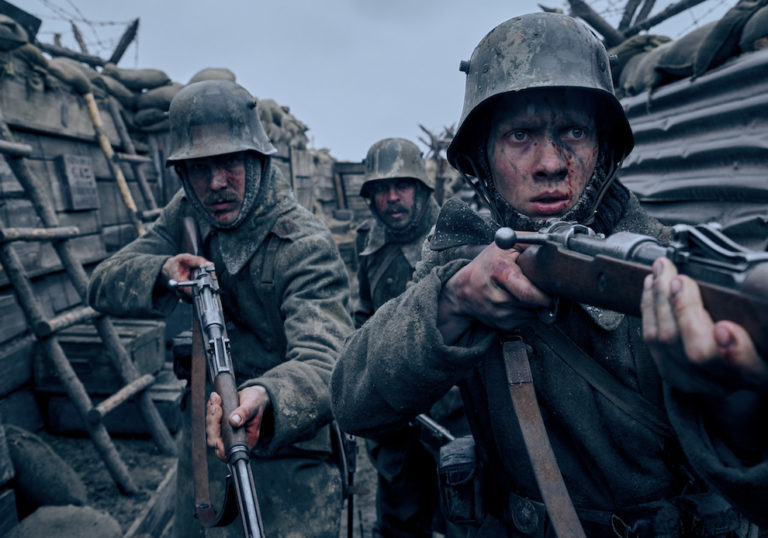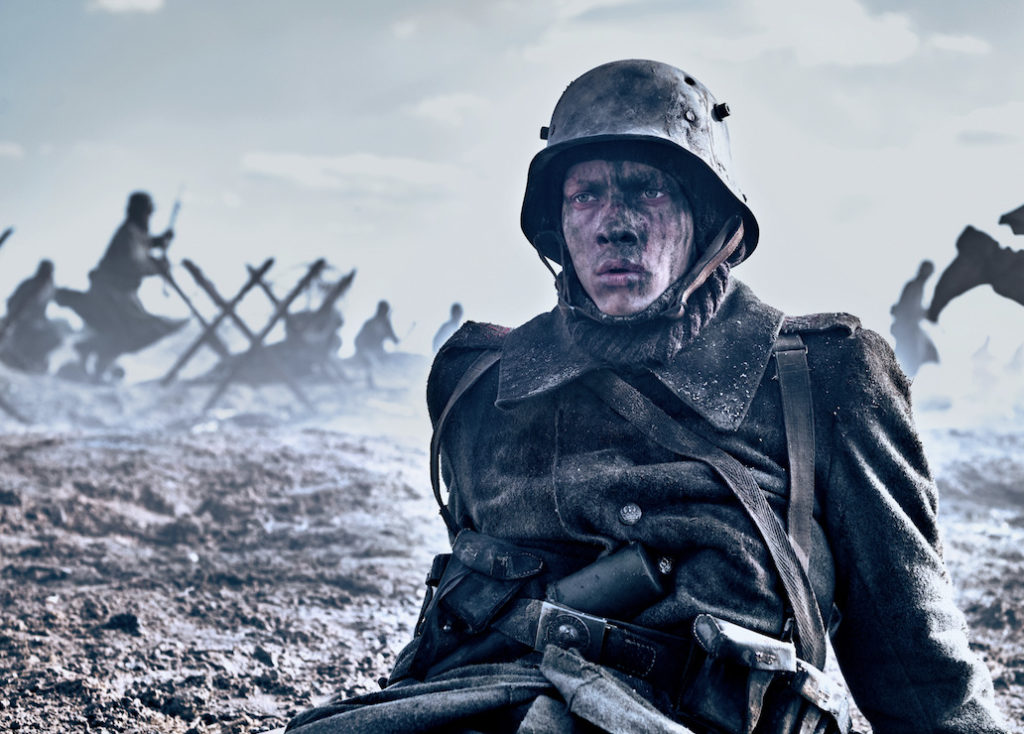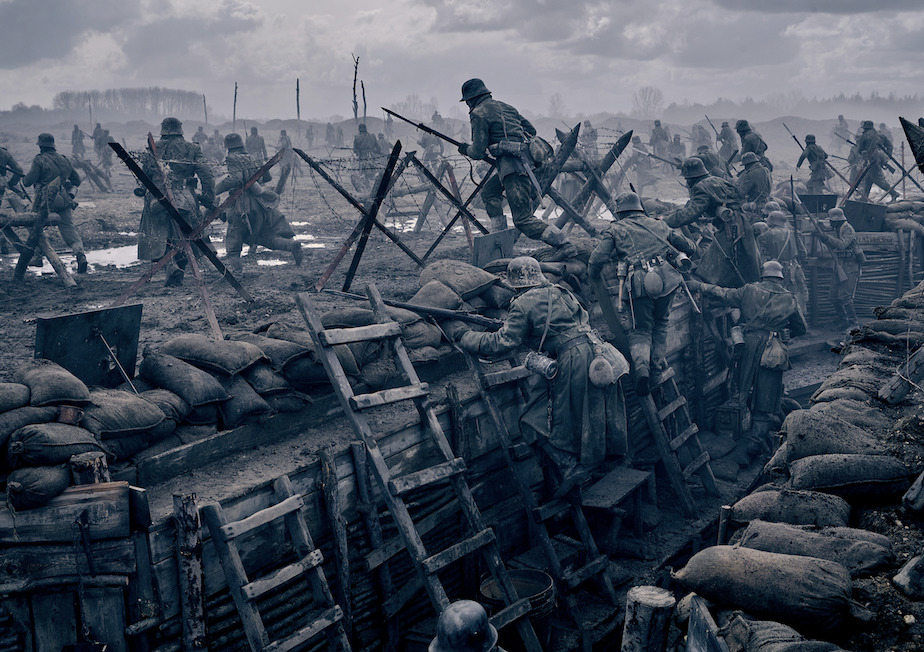
The classic war novel, “All Quiet in Western Front,” by Erich Maria Remarque, was one of the most impressive literary works of the 20th century. It was serialized in Berlin’s Fossische Zeitung from November to December 1928 and then, in January 1929, was published as a complete book. Based on his own traumatizing experiences as a young German soldier in the trenches of France during World War 1, this world-bestseller conveyed the inhuman horrors of war.
Now, more than 90 years after its landmark publication, Remarque’s 1929 novel gets its first German-language adaptation thanks to the remarkable work by director Edward Berger. It’s being released through Netflix.
In the hands of actor Felix Kammerer, a fresh-faced German teenager Paul Bäumer — who was taught patriotism at school — is seen driven by passion, so he volunteers to be a new recruit and is thrilled to be going where the action is. He heeds the call to fight for “the Kaiser, God and the Fatherland.”
Initially, this kid is filled with excitement and pride, ready to fight for the glory of his homeland. But when he’s handed his uniform and sees another man’s name sewn inside the collar, he’s faced with a reality that echoes until the film’s end. “Excuse me,” he says to the officer handing them out, “It already belongs to someone.” “Ah yes,” comes the reply.
“It was probably too small for the fellow. Happens all the time.” The officer rips off the tag and hands the uniform back to the young soldier, saying. “Here, it’s yours.”
Paul bonds with Kat (Albrecht Schuch) — a rakish veteran with a knack for team-building and stealing geese (for the starving soldiers). Simple patriotism, courage, friendship, and a sense of duty is displayed by the men on the battlefield. But what’s more engaging about this film, is its thorough military accuracy. The research is genuine and accurately drawn, showing the machine guns, tanks, flame throwers, and poisonous gases that were first introduced during World War I. The film shows how to calmly put on a gas mask, how to distinguish the distance of cannonball by the sound when firing, and how to fight with bayonet when you face the enemy in hand-to-hand combat. The reality of the front line at that time is vividly depicted.

When you see the press coverage of the war between Russia and Ukraine you still feel it’s not “our” country. When the USA invaded Iraq believing it had weapons of mass destruction after the attack on 9/11, we responded in the name of war. But there’s no holy war or crusade that justifies such mass destruction and “All Quiet in Western Front” affirms that.
Its ominous score by composer Volker Bertelmann is hauntingly unsettling. Even though principal photography takes place in the Czech Republic, cinematographer James Friend achieves a panoramic vision of war which transcended location. This is a difficult viewing experience, but it’s also a technical marvel, a carefully considered, relatable character study of human behavior.
It’s could be easy to dismiss this film as another war chronicle. Yet, even though tactics of war have drastically changed since the dawn of the digital era, war has became more inhumane and Remarque’s novel remains profoundly relevant.
In the end, it’s ironic that this story of a soldier who went through such incredible anguish and conflict has a satirical edge in showing the inhumanity of war — the death of a soldier is not recorded or has tags which are collected from the battleground. The Western Front became bogged down in trench warfare, and more than three million soldiers died there, and during the First World War I almost 17 million people lost their lives. This antiwar statement was so definitive that it was banned by the Nazis a few years after its 1929 publication. Thankfully, it has been brought to the screen again in its original tongue, and it has a voice that’s still resonating.

Check out more of Nobuhiro’s articles.
Here’s the trailer of the film.

